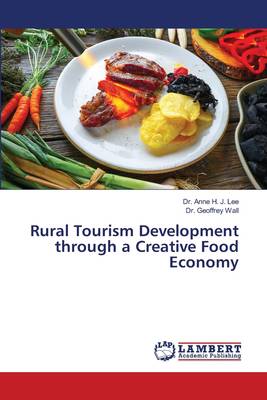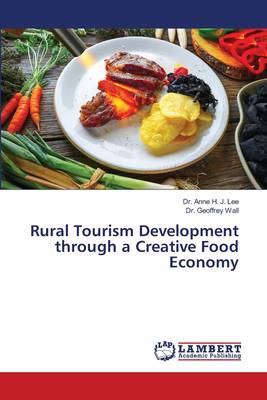
- Afhalen na 1 uur in een winkel met voorraad
- Gratis thuislevering in België vanaf € 30
- Ruim aanbod met 7 miljoen producten
- Afhalen na 1 uur in een winkel met voorraad
- Gratis thuislevering in België vanaf € 30
- Ruim aanbod met 7 miljoen producten
Zoeken
Rural Tourism Development through a Creative Food Economy
Anne H J Lee, Geoffrey Wall
Paperback | Engels
€ 68,95
+ 137 punten
Omschrijving
This work provides a conceptual foundation for culinary tourism as a part of the development a creative food economy involving place branding. It analyzes the formation of culinary clusters that result from innovation in the production and consumption of local food. Porter's (1990) clustering model is used as a point of departure but is modified substantially to fit a situation in which tourism and agriculture are the leading sectors. Four key elements are specified in the new model: 'environmentally friendly movement', 'leadership', 'stakeholder collaboration' and 'communication and information flows'. The study makes important contributions to knowledge both conceptually and empirically by creating a model that addresses the creation of culinary clusters, by demonstrating the utility of the model through detailed case studies conducted in Ontario Canada, and practically, by directing attention to items that need careful consideration if synergistic relationships are to be established between agriculture and tourism through the development of culinary clusters as part of place-based rural economic development.
Specificaties
Betrokkenen
- Auteur(s):
- Uitgeverij:
Inhoud
- Aantal bladzijden:
- 228
- Taal:
- Engels
Eigenschappen
- Productcode (EAN):
- 9783330032927
- Verschijningsdatum:
- 15/06/2018
- Uitvoering:
- Paperback
- Formaat:
- Trade paperback (VS)
- Afmetingen:
- 152 mm x 229 mm
- Gewicht:
- 340 g

Alleen bij Standaard Boekhandel
+ 137 punten op je klantenkaart van Standaard Boekhandel
Beoordelingen
We publiceren alleen reviews die voldoen aan de voorwaarden voor reviews. Bekijk onze voorwaarden voor reviews.











